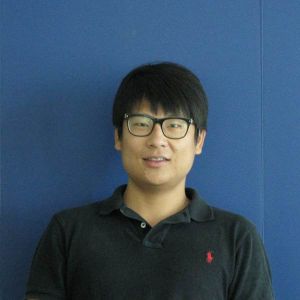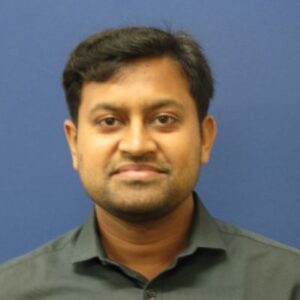Education is at the center of ITS-Irvine’s mission. We invite scholars from all disciplines who have an interest in transportation topics to participate in our Institute’s activities. We engage directly with both undergraduate and graduate students through events, outreach, and direct student support for participation in our research programs.
Graduate Programs in Transportation
Students interested in transportation research and graduate studies at UCI may pursue graduate degrees in a variety of formal transportation graduate programs. Participants from all programs benefit from our collaborative environment with:
- 30+ Transportation Faculty Members
- 35+ Transportation Graduate Students
- Research and study space in our Institute offices
- Research Projects with NSF, DOE, USDOT, Caltrans, CARB, and more!
PhD and MS in Transportation Systems Engineering
Transform Mobility with a Systems-Oriented Transportation Degree
Among leading centers for transportation research, the UCI Department of Civil and Environmental Engineering (CEE) offers a graduate program for Transportation Systems Engineering (TSE) that is distinguished by its interdisciplinary approach to the study of contemporary urban transportation issues, and by its unique relationship with the UC Irvine Institute of Transportation Studies. The program focuses on the planning, design, operation, and management of modern transportation and logistics systems. Emphasis is on the development of fundamental skills and knowledge in engineering, systems analysis, modeling, and planning, combined with advanced computational techniques, to address transportation problems affecting urban travel and goods movement.
Master of Science
- Thesis-based or course-based
- Teaching and research positions
- Graduate in 12 months
Doctor of Philosophy
- Four-year funding offers
Inherently Interdisciplinary Research and Multi-disciplinary Course Offerings
- Business
- Computer Science
- Economics
- Engineering
- Law
- Medicine
- Public Health
- Urban Planning and Public Policy
Cutting Edge Research
- Public Transit & Shared Mobility
- Travel Demand, Behavior, Equity, & Accessibility
- Freight, Logistics, & Supply Chain
- Transportation Networks and Systems Analysis
- Intelligent Transportation Systems & Emerging Technologies
- Traffic Operations, Safety, & Security
- Transportation Energy & Environment
- Transportation Data, Analytics, & Visualization
- Transportation Economics, Policy, & Urban Planning
Successful Alumni
- Academia: Tenured or Tenure-track Professors: UMichigan, UC Davis, McGill, NYU, TU Delft, UArkansas, Texas A&M, UMissouri, CCNY, UNLV, UBuffalo, U Puerto Rico, McMaster, UPC Spain, UChile, Inha, … more
- Research Laboratories: Argonne National Labs, NREL, Singaport-MIT Alliance
- Public agencies: LADOT, Caltrans, CARB, SANDAG, NYDOT, SCAG, LA Metro
- Consulting: Fehr and Peers, Cambridge Systematics, Stantec
- Industry: Amazon, Ford, Hyundai, Siemens, Nike, T.Y. Lin International, Apple, Walmart, Aimsum
Learn more about some of our TSE graduates…
Transportation Science
Experience a truly interdisciplinary graduate program in Transportation
The University of California, Irvine (UCI) has evolved a unique interdisciplinary program in Transportation Science, making UCI the natural selection for graduate studies at the frontiers of the field. While most transportation programs focus on a single discipline, UCI’s program, which leads to the M.S. or Ph.D., is administered by faculty from the Departments of Economics, Civil and Environmental Engineering, and Urban & Regional Planning, as well as from the Department of Information and Computer Science and the Graduate School of Management.
Master of Science
- Thesis-based or course-based
- Teaching and research positions
- Graduate in 12 months
Doctor of Philosophy
- Four-year funding offers
Inherently Interdisciplinary Research and Multi-disciplinary Course Offerings
- Business
- Computer Science
- Economics
- Engineering
- Law
- Medicine
- Public Health
- Urban Planning and Public Policy
Cutting Edge Research
- Public Transit & Shared Mobility
- Travel Behavior, Equity & Accessibility
- Freight, Logistics & Supply Chain
- Intelligent Transportation Systems & Emerging Technologies
- Traffic Operations, Safety & Security
- Transportation Energy & Environment
- Transportation Data, Analytics & Visualization
- Transportation Economics, Policy & Urban Planning
Successful Alumni
- Dean, City University of New York
- Professor of Civil Engineering, Chulalongkorn University
- Regional Administrator, Federal Aviation Administration
- Senior Planner, California Air Resources Board
- Chair, Dept of Marketing, School of Management, Nat. Chung Hsing Univ.
- Senior Economist, U.S. Customs and Border Protection
- Operations Analyst, Google
- Regional Director of Market Analysis, Boeing
- Professor of Civil Engineering, University of Arkansas
- Applied Scientist, Amazon Go
Learn more about some of our Transportation Science graduates…
PhD in Urban and Environmental Planning and Policy
Join a dynamic, interdisciplinary program that empowers you to make a difference
Today’s complex environmental, social and urban issues are best understood by researchers who can work across disciplinary boundaries, and who understand the relationship of research to action. The Urban and Environmental Planning and Policy (UEPP) doctoral program at UCI trains scholars in the analysis of social problems related to the built, natural, and institutional environments. The UEPP Ph.D. is based on the department’s internationally prominent research and teaching strengths in environmental policy, urban and community development and design.
Learn more about some of our UPPP graduates…
Other Programs
Students from other disciplines not listed above are welcome to participate in transportation research with ITS-Irvine.
Learn more about some of our PhD graduates from other disciplines…
Transportation Courses by Academic Year
- Transportation Course Listing for 2024-2025
- Transportation Course Listing for 2023-2024
- Transportation Course Listing for 2022-2023
- Transportation Course Listing for 2021-2022
- Transportation Course Listing for 2020-2021
- Transportation Course Listing for 2019-2020
- Transportation Course Listing for 2018-2019
- Transportation Course Listing for 2017-2018
- Transportation Course Listing for 2016-2017
- Transportation Course Listing for 2015-2016
- Transportation Course Listing for 2014-2015
- Transportation Course Listing for 2013-2014
- Transportation Course Listing for 2012-2013
- Transportation Course Listing for 2011-2012
- Transportation Course Listing for 2010-2011
- Transportation Course Listing for 2009-2010
- Transportation Course Listing for 2008-2009
- Transportation Course Listing for 2007-2008
Know of a course not listed? Please e-mail Michael G. McNally <mmcnally-at-uci-dot-edu>




